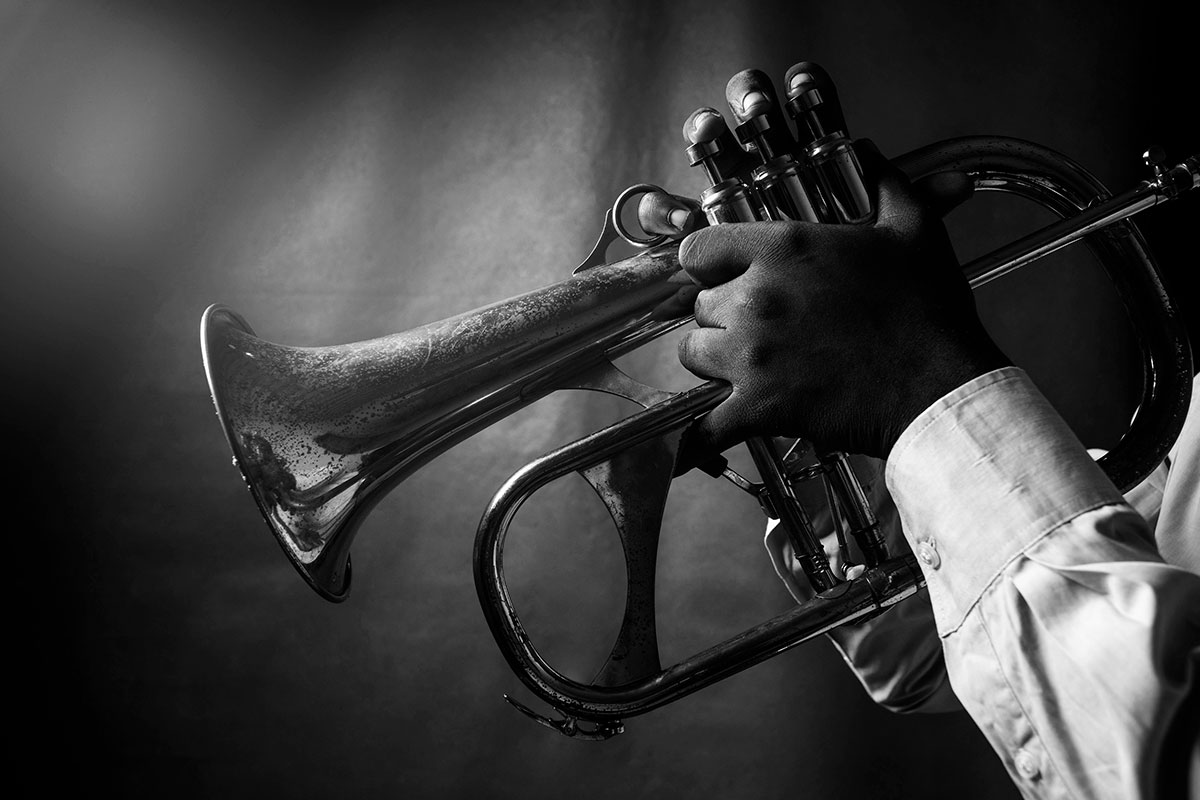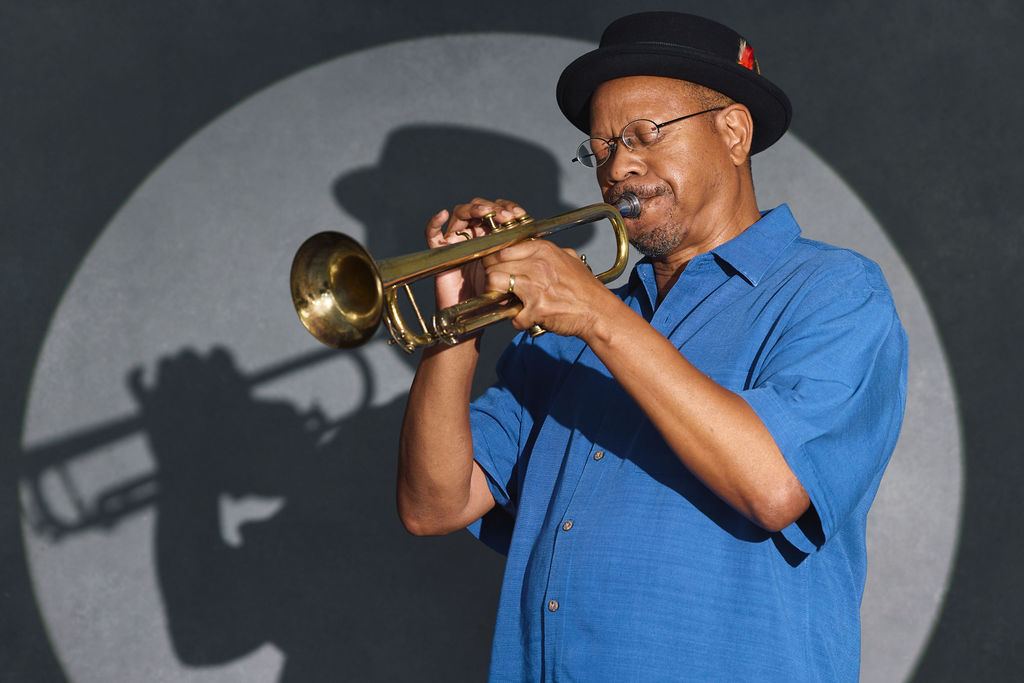An Afrocentric Guide to Jazz Improvisation
Become more fluent in the language of jazz
Blues Jazz Theory™ uses a linguistic approach to explore the language of jazz from the inside out. It helps musicians from all backgrounds develop a better understanding of the ways in which blue notes can be used to open up new pathways of expression in Jazz and Blues improvisation.

Intro to Blues Jazz TheoryTM: Jazzy Flow Studies
Introducing the elements of tonal language analysis

Origins of Blues Jazz Theory™
In 1998, inspired by Muddy Waters’ “Original Stovall Plantation Recordings,” I embarked on a journey to unravel the connections between Jazz, Blues, and Gospel styles. Struck by the familiarity in Waters’ voice, I explored blues relationships through exercises. However, I couldn’t trace the origins of these melodic and harmonic relationships.
Despite extensive research on blue notes and blues origins, few answers emerged. The synthesis of African and European elements in Jazz’s narratives presented challenges for ethnomusicologists. The scant evidence connecting blues and jazz styles to specific African regions led me to conclude their uniqueness to the Afro-American experience in North America.
Recognizing the oversight of African cultural contributions to early Afro-American music, I delved into my background in African Area Studies. BLUES JAZZ THEORY™ reflects my attempt to link Jazz styles to the cultural ethnogenesis of enslaved Africans and their descendants in eighteenth-century North America, reinterpreting Jazz theory through the lens of the Blues and Black experience in the twentieth century.
Transform Your Playing with Blues Jazz TheoryTM
Whether you’re an aspiring jazz musician or a seasoned professional, with Blues Jazz Theory™, you’ll learn how to incorporate blue notes and other chromatic elements to your playing.
Master Improvisation
Explore the intricate relationships between harmony and melody and learn how to improvise freely over any chord progression and confidently solo over jazz standards.
Deepen Your Appreciation of the Jazz Experience
Discover the significance of blue notes to African American music styles and appreciate the beauty of jazz from a historical, theoretical, and practical perspective.


A Linguistic Approach to Modern Jazz Improvisation
Learn how to use linguistic concepts to unlock the secrets of the language of jazz improvisation. Using an approach that employs the analytical elements of tonal languages, Blues Jazz Theory helps performers, students, and educators create unique and memorable jazz solos that speak the authentic language of jazz
A Linguistic Approach to Creating Melodic Ideas
Advanced Improvisation Techniques
Learn powerful techniques to maximize improvisation skills and take your jazz solos to the next level
An Afrocentric Approach to Melody
Master Improvisation

Explore the intricate relationships between harmony and melody and learn how to improvise freely over any chord progression and confidently solo over jazz standards.
Learn how to make sense of blue notes and chromatic tones

Improve your ability to improvise and build fluency in the language of jazz with our comprehensive studies and exercises.
Deepen Your Appreciation of the Jazz Experience

Discover the significance of blue notes to African American music styles and appreciate the beauty of jazz from a historical, theoretical, and practical perspective.
Dive Deeper into Blues Jazz TheoryTM
Enhance Your Understanding of the Language of Jazz
Blues Jazz Theory™ traces the origins of blue notes to the transformation of African cultural elements in the United States across the nineteenth and twentieth centuries. Cultural Impact: Tonal Languages and the Roots of Afro-American Music It should be acknowledged that in addition to the many musical techniques that might...
Read MoreCreate your own musical language using Blues Jazz Theory™
Exploring Context-Dependent Meaning in Music: Tones, Sequences, and Harmonic Contexts The phrase “context-dependent meaning” is associated with the linguistic and philosophical fields of semantics which focuses on the meanings attached to words and how their meanings and interpretations are dependent on the grammatical and situational contexts in which they are...
Read MoreEric D. Wright
Founder and Creator of Blues Jazz Theory™

Eric D. Wright, a distinguished trumpeter, performer, and educator, stands out as a notable figure in the realm of jazz studies. With over five decades dedicated to jazz improvisation and trumpet artistry, Eric seamlessly intertwines academic curiosity, cultural history, and jazz expression in his performances, teachings, and writings. His stylistic versatility has captivated audiences across four continents, sharing the stage with luminaries like Ricardo Lemvo, Ernie Andrews, Chris Calloway, and Bobby Caldwell.
Beyond the stage, Eric is an influential professor, inspiring students in trumpet playing, jazz improvisation, and African American culture and history. As a peer-reviewed author, his contributions to academic journals, including the International Trumpet Guild Journal, attest to his commitment to excellence in trumpet performance and jazz improvisation.
Eric’s scholarly journey includes degrees in Music from UCLA (BA, 1979) and Rutgers University (MM, 1992), and a master’s degree in African Studies from UCLA (MA, 1982). Hailing from Compton, California, he embodies the “tradition of West coast mavericks/innovators”, with his ongoing evolution as a scholar reflected in his dedication to advancing jazz pedagogy. His unique approach culminates in the groundbreaking concepts of his latest work, Blues Jazz Theory™.


